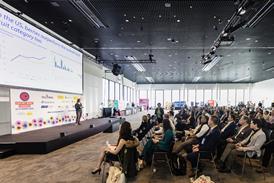The group says it is looking to accelerate its transformation and further digitise logistics

Logistics giant Maersk has announced that it is expanding its use of Microsoft Azure as its cloud platform, as it aims to digitise its processes further on the path to decarbonisation.
According to the group, Azure provided it with access to a ”resilient and performing” portfolio of cloud services, enabling Maersk’s business to “innovate and deliver scalable, reliable, and secure products with improved time to market”.
”I am thrilled to extend our collaboration with Microsoft,” said Navneet Kapoor, executive vice-president and chief technology and information officer at Maersk.
”With Microsoft, we can use their innovation in the technology space to drive our innovation in the logistics space,” he said. ”Together, we have a unique and interdependent relationship which is driven by mutual creation, trust, and an understanding of both companies’ strategic direction, which is valuable to all.”
Maersk pointed out that the collaboration had already brought digital solutions to the market, such as Remote Container Management (RCM), which allowed it to monitor temperature and humidity data from hundreds of thousands of refrigerated shipping containers in real time.
Another project, Connected Vessel, aimed to optimise fuel consumption by monitoring performance data from Maersk’s container vessels to create a shared view with experts onshore.
Both projects were great examples of the benefit of digitisation in bringing value for Maersk’s customers and their businesses, as well as the commitment to decarbonise logistics, the group outlined.
”Digital technologies are essential for the logistics industry to develop solutions and services that will help build and maintain resilient supply chains,” said Judson Althoff, executive vice-president and chief commercial officer at Microsoft.
”With Azure as Maersk’s strategic cloud platform, Microsoft and Maersk are collaborating to accelerate innovation and digitise the industry to meet its customers’ evolving needs.”






